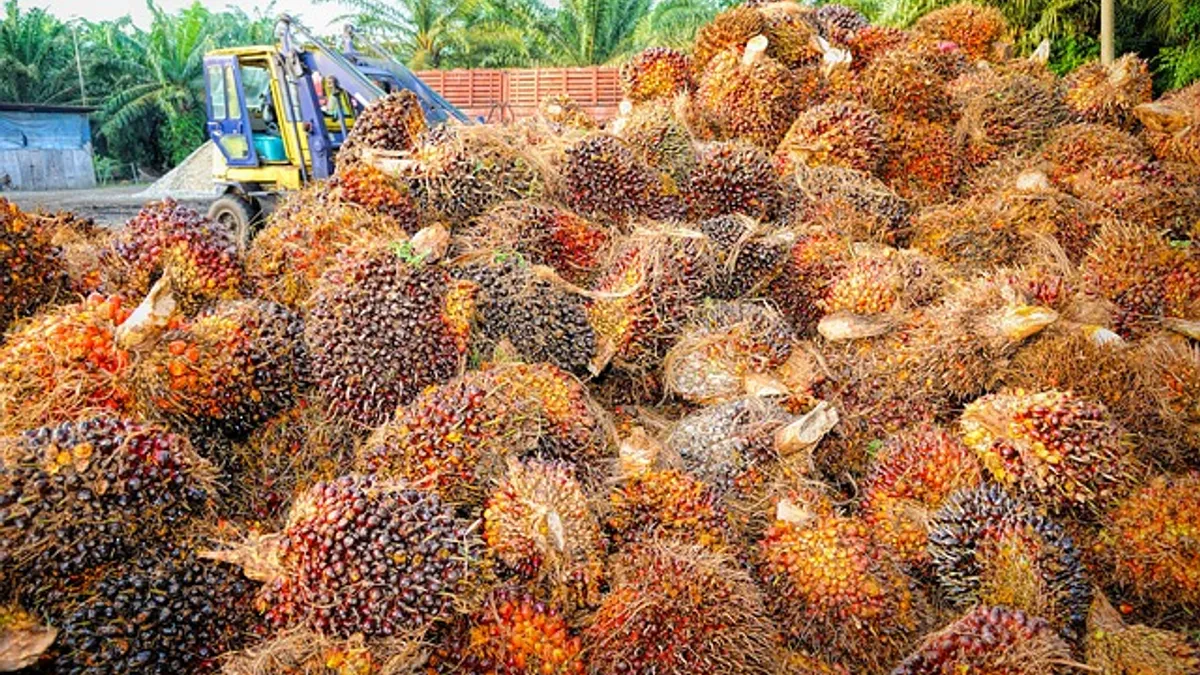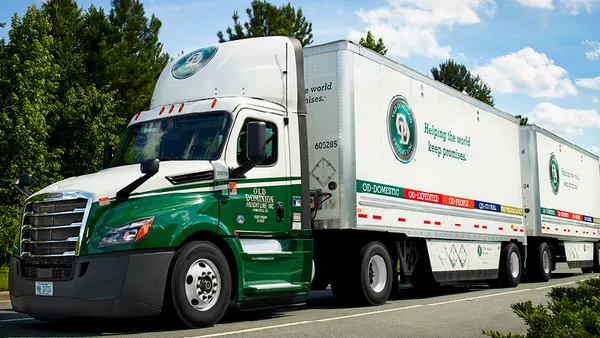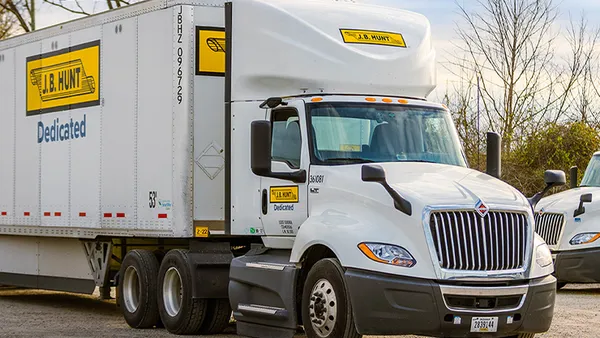Dive Brief:
- Unilever is partnering with Orbital Insight, a satellite imagery and data analytics firm, on a pilot program to help the consumer-goods company meet its goal of a deforestation-free supply chain by 2023 and trace its global palm oil supply from factories back to individual forests and farms, Orbital announced Tuesday.
- Orbital Insight will use satellite imagery, GPS, artificial intelligence, the internet of things and other visibility data to monitor palm oil farms, the health of local forests, and traffic to and from Unilever's suppliers and production facilities. The technology "allows us to continuously monitor planted and natural forests, grasslands and agriculture, water resources, buildings and roads. We can quantify cars, trucks, ships, railcars and commercial aircraft," according to the release.
- While Unilever has focused on reducing single-use plastics, emissions and other forms of waste across its supply chain in recent years, "it’s just as important to continue to look at the impact they have on the planet at the start of their life — in the sourcing of materials — as well as in their manufacture and transport," CEO Alan Jope said in a statement.
Dive Insight:
In a presentation to investors in 2019, Unilever's Chief Procurement Officer Dave Ingram noted that palm oil is naturally less land- and resource-intensive to produce than soybean or other plant oils. However, due to its popularity as a stabilizer and shelf-stable ingredient in food and health care goods, mass production has led to widespread rainforest deforestation in Indonesia, Malaysia and parts of South America.
"In opaque markets like Indonesia or Brazil, there's a huge lack of visibility as it relates to supply chains deep down into tier two, three and then all the way down to the small holder or the farm level," Bryan Yates, director of sales and general manager for Europe, the Middle East and Africa at Orbital Insight, said in a podcast interview in April. "[This] has been a huge pain point for the industry in terms of their traceability initiatives."
This difficulty in gaining transparency is part of the reason companies such as Nestlé and Procter & Gamble failed to meet their 2020 deforestation reduction goals.
While more companies are looking to visibility tools to improve their sustainable sourcing of goods from cocoa to vanilla, procurement's track record has gotten worse in recent years, despite access to better technology, according to an Ecovadis report.
"There's a lot of companies that are just starting to figure out how to report and collect the right information, set the right policies, [and] take the right actions on these topics of environmental risks and management and on labor risk management," David McClintock, marketing director at EcoVadis, recently told Supply Chain Dive.
Unilever committed to fully disclosing its palm oil sources in 2018. However, in 2019, Greenpeace ended its work with Unilever, Mondelez and Wilmar on a deforestation monitoring platform "over their repeated failure to take necessary action to follow through on their commitments to achieve no deforestation."
Since then, in addition to its pilot with Orbital Insight, Unilever has begun implementing restorative agriculture standards for farmers to reverse the effects of deforestation, investing in education and other resources to help them farm palm oil sustainably, increasing supplier sustainability monitoring, and taking other measures to achieve net-zero emissions from its products by 2039.
"In most parts of the world, the economic and social inclusion of farmers and smallholders in sustainable agricultural production is the single most important driver of change for halting deforestation, restoring forests and helping regenerate nature," Unilever Chief Supply Chain Officer Marc Engel said in a statement.














